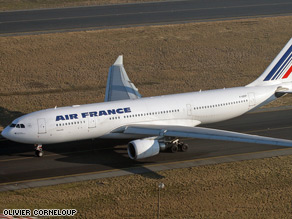Paramedics were called to the singer's Beverly Hills home at about midday on Thursday after he stopped breathing.
He was pronounced dead two hours later at the UCLA medical centre. Jackson's brother, Jermaine, said he was believed to have suffered a cardiac arrest.
Jackson, who had a history of health problems, had been due to stage a series of comeback concerts in the UK on 13 July.
Speaking on behalf of the Jackson family, Jermaine, said doctors had tried to resuscitate the star for more than an hour without success.
He added: "The family request that the media please respect our privacy during this tough time.""And Allah be with you Michael always. I love you."
Concerns were raised last month when four of Jackson's planned comeback concerts were postponed, but organisers insisted the dates had been moved due to the complexity of staging the show.
A spokeswoman for The Outside Organisation, which was organising the publicity for the shows, said she had no comment at this time.
Broadcaster Paul Gambaccini said: "I always doubted that he would have been able to go through that schedule, those concerts. It seemed to be too much of a demand on the unhealthy body of a 50 year old.
"I'm wondering that, as we find out details of his death, if perhaps the stress of preparing for those dates was a factor in his collapse.
"It was wishful thinking that at this stage of his life he could be Michael Jackson again."
Uri Gellar, a close friend of the star, told BBC News it was "very, very sad".
peaking outside New York's historic Apollo theatre, civil rights activist Rev Al Sharpton paid tribute to his friend.
"I knew him 35 years. When he had problems he would call me," he said.
"I feel like he was not treated fairly. I hope history will be more kind to him than some of the contemporary media."
Melanie Bromley, west coast bureau chief of Us Weekly magazine, told the BBC the scene in Los Angeles was one of "pandemonium".
"At the moment there is a period of disbelief. There are hundreds of people outside UCLA waiting for news.
"He was buying a home in the Holmby Hills area of Los Angeles and the scene outside the house is one of fans, reporters and TV cameras - it's absolute craziness.
"I feel this is the biggest celebrity story in a long time and has the potential to be the Princess Diana of popular culture."
Musical icon
 | MICHAEL JACKSON 1958-2009 Full name: Michael Joseph Jackson Born: August 29, 1958, Gary, Indiana, US Also known as: The King of Pop, Wacko Jacko Biggest hits: I Want You Back, Don't Stop Til You Get Enough, Billie Jean, Bad, Black or White, Earth Song |
Paramedics were called to the singer's house in Bel Air at 1221 (1921GMT) following an emergency phone call.
They performed CPR on Jackson and rushed him to the UCLA medical centre.
A spokesman for the Los Angeles Police Department said the robbery and homicide team was investigating Jackson's death because of its "high profile", but there was no suggestion of foul play.
Jackson began his career as a child in family group The Jackson 5.
He then went on to achieve global fame as a solo artist with smash hits such as Billie Jean and Bad.
Thriller, released in 1982, is the biggest-selling album of all time, shifting 65m copies, according to the Guinness Book of World Records.
He scored seven UK number ones as a solo artist and won a total of 13 Grammy awards.
"For Michael to be taken away from us so suddenly at such a young age, I just don't have the words," said Quincy Jones, who produced Thriller, Bad and Off The Wall.
 Jackson's body was flown from hospital to the LA coroner's office |
"He was the consummate entertainer and his contributions and legacy will be felt upon the world forever. I've lost my little brother today, and part of my soul has gone with him."
The singer had been dogged by controversy and money trouble in recent years, becoming a virtual recluse.
He was arrested in 2003 on charges of molesting a 14-year-old boy, but was found not guilty following a five-month trial.
The star had three children, Michael Joseph Jackson Jr, Paris Michael Katherine Jackson and Prince Michael Jackson II.
He is survived by his mother, Katherine, father, Joseph and eight siblings - including Janet, Randy, Jermaine and La Toya Jackson.





